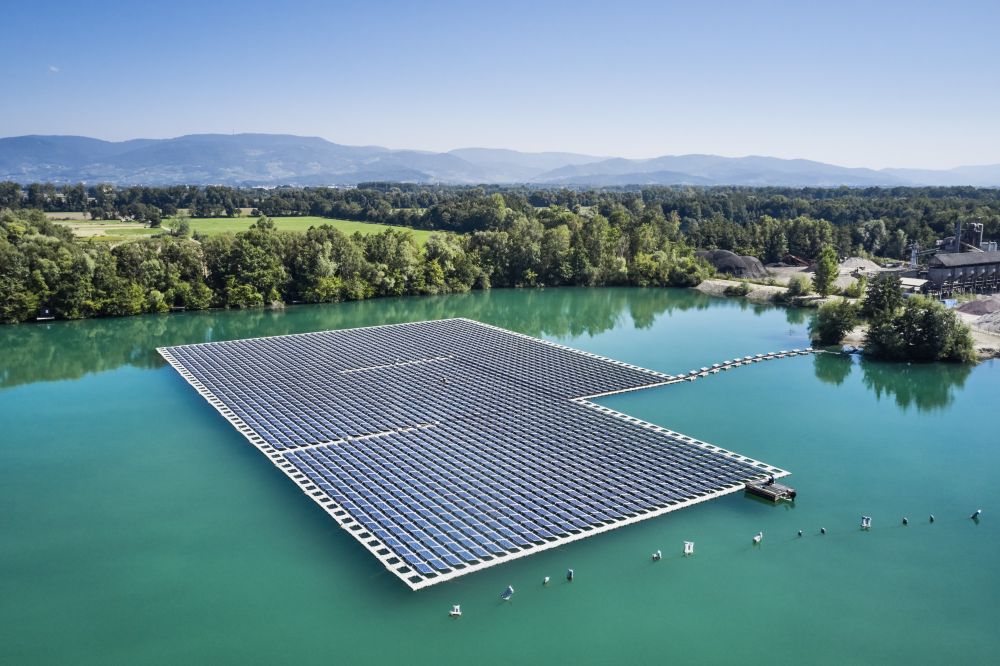| Duration: | 01/2022 - 12/2024 |
| Contracting Authority/ Sponsors: | Sustainability Performance Center Freiburg (LZN) |
| Project Partners: | Professorship for Hydrology of the Albert-Ludwigs-University Freiburg |
| Website: | FPV4Resilience - Leistungszentrum Nachhaltigkeit |
| Project Focus: |
FPV4Resilience – Increased Climate Resilience of Standing Waters through Yield-Optimized Floating Photovoltaics

The goal of the project is to investigate the effects of multiple FPV system configurations on different types of lakes. These findings will then be used to best shield affected aquatic ecosystems from climate change induced changes during FPV plant design. Based on different factors, such as surface occupancy or module tilt angle, an influence on the energy balance in the lake will be calculated, which both counteracts the effects of climate change as much as possible and maximizes electricity yields.
Floating PV (FPV) represents a comparatively new technology in Europe with considerable global potential. Here, the PV modules are placed on floating substructures on the water, which can take place both on inland waterways and on the sea. This avoids competing uses on land, such as with agriculture. Impacts of FPV facilities on the hydrology and ecosystem of the hosting water body are still insufficiently researched, although they form the basis for approval procedures for the construction and operation of such facilities. An important aspect of the still unclear interaction between water bodies and FPV facility is the climate resilience of the former. European lakes will be subject to changes in terms of their thermal characteristics as a result of climate change. This may affect, for example, the mixing (mixis) and trophicity of the water bodies. As a result, aquatic ecosystems may be severely degraded and in some cases even completely lost. In addition, the function of lakes as carbon sinks and thus their role as climate regulators can be significantly affected.
The goal of the project is to investigate the effects of multiple FPV system configurations on different types of lakes. These findings will then be used to best shield affected aquatic ecosystems from climate change induced changes during FPV plant design. Based on different factors, such as surface occupancy or module tilt angle, an influence on the energy balance in the lake will be calculated, which both counteracts the effects of climate change as much as possible and maximizes electricity yields. Thermal and ecological lake parameters are calculated by a hydrological model adapted to FPV occupancy, current yields of the respective FPV elevations by yield simulations with the ISE software Zenit. The Pareto fronts calculated with this software will additionally be compared with measured data of existing power plants.